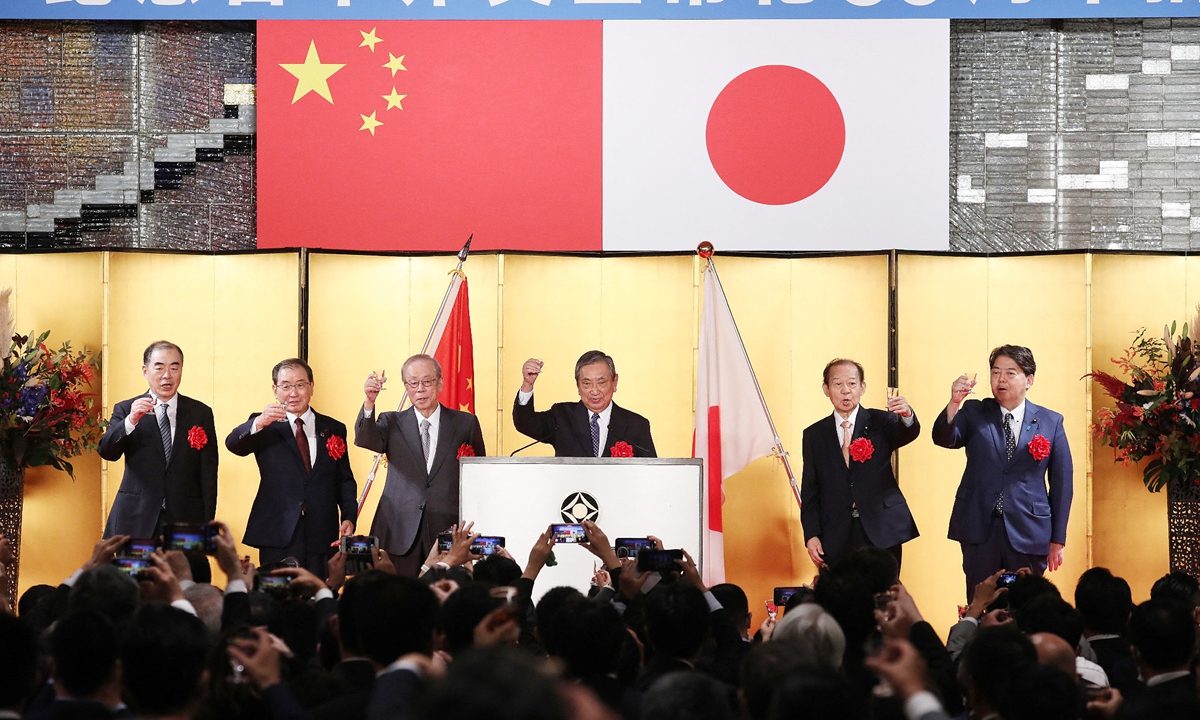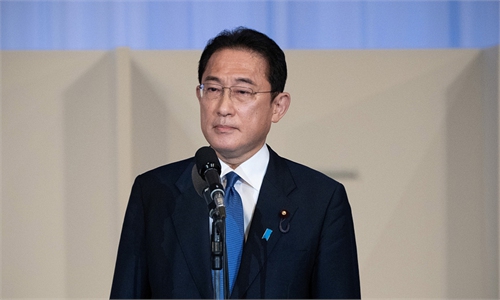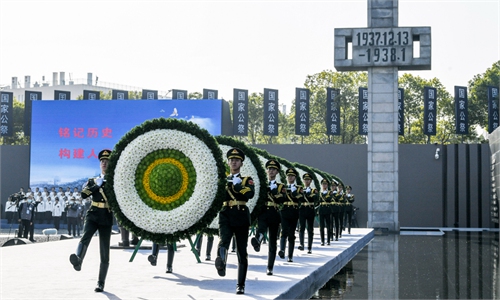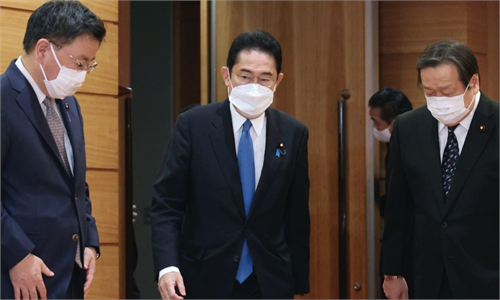Japanese FM eyes visit to China amid tense ties overshadowed by ‘aggressive defense strategy’

From left to right, Chinese Ambassador to Japan Kong Xuanyou, Keidanren Chairman Masakazu Tokura, former prime minister Yasuo Fukuda, former speaker of the lower house Yohei Kono, former secretary-general of the Leberal Democratic Party Toshihiro Nikai and Foreign Minister Yoshimasa Hayashi make a toast at the reception commemorating the 50th anniversary of the normalization of Japan-China diplomatic relations in Tokyo on September 29, 2022.
Japan's foreign minister is reportedly eyeing his first visit to China in about three years, which Chinese observers believe will be a good sign for managing the differences on major and sensitive topics, including the Diaoyu Islands issue and Taiwan question. But considering Japan's recent provocations, including calling China a "challenge" in its defense strategy, they remain cautious over the prospect of bilateral relations.
On Wednesday, Japanese media outlet NHK learned that arrangements are being made for Japanese Foreign Minister Yoshimasa Hayashi to travel to Beijing late this month to meet with Chinese State Councilor and Foreign Minister Wang Yi.
The development came after Japan's ruling coalition on Monday agreed on a National Security Strategy update that calls China an "unprecedented strategic challenge," laying the groundwork for bolstering the nation's defense capabilities, Nikkei reported.
Japan's Liberal Democratic Party (LDP) and the Komeito party reached an agreement on Monday on the draft revisions of three security documents of "National Security Strategy," "National Defense Strategy" and "Defense Force Preparedness Plan." The 2013 version of Japan's security strategy describes China's actions as an "issue of concern," while in this draft revision, China is labeled as an unprecedented "strategic challenge." It was also written in the draft that Japan will possess the capability to launch counterstrikes against facilities such as missile-firing sites and other enemy targets. The document is planned to be finalized through a cabinet resolution on December 16 at the earliest. This is the first revision since Japan formulated its current security strategy in 2013, and it is also a major change in Japan's security policy after World War II. The signal it releases is undoubtedly very dangerous.
Against this background of an aggressive defense strategy that will soon be approved, Japan releasing the news of Hayashi's possible visit to China is intended to lower the tone of China's protests, Da Zhigang, director of the Institute of Northeast Asian Studies at Heilongjiang Provincial Academy of Social Sciences, told the Global Times on Thursday.
However, the so-called pro-China Hayashi is bound to draw criticism and opposition from conservative forces in Japan's ruling Liberal Democratic Party, as they regard the possible visit as a "concession gesture" to China. This means the release of the news also has the aim of testing the reaction of conservative forces in Japan, Da believes.
During the possible meeting, Hayashi is expected to convey to Wang that Japan wants to continue dialogue with China and build a constructive and stable relationship through the efforts of both sides, NHK cited sources as saying.
The foreign ministers are also expected to exchange views on revitalizing private-sector exchanges, which have significantly decreased due to the pandemic, according to the report.
Hayashi is expected to explain Japan's key defense policy documents, including the National Security Strategy, which are scheduled to be updated this week and list China as an "unprecedented strategic challenge," Kyodo News reported. This is the first revision since Japan formulated its current security strategy in 2013, and it is also a major change in Japan's security policy after World War II, which is "undoubtedly very dangerous."
If this visit can be made amid the conservative swing in Japanese society, it will help activate the China-Japan ministerial meeting mechanism, implement the emergency maritime and air consultation and liaison mechanism, and prevent conflicts on maritime issues, which will play a positive role in improving bilateral relations, Da said.
At the same time, this visit would be a good sign that will help to carry forward the consensus reached by the leaders of China and Japan in their meeting last month, ease tensions in the atmosphere of the 50th anniversary of the normalization of China-Japan relations, and build stable and constructive relations that meet the requirements of the new era, the observer noted.
On November 17, Chinese President Xi Jinping and Japanese Prime Minister Fumio Kishida held the first face-to-face bilateral summit in about three years in Thailand, where the two leaders reached a five-point consensus on stabilizing and developing bilateral relations, stressing that the two countries should "be partners, not threats."
Given that ties between the two countries have been chilly after Japan provoked China intensively on the Taiwan question, Diaoyu Islands issue and other sensitive issues while hyping the so-called China threat under the US-led Indo-Pacific Strategy, observers warned that although Tokyo is trying to ease tensions with Beijing through Hayashi's visit, Beijing should be highly alert to their provocative moves.




